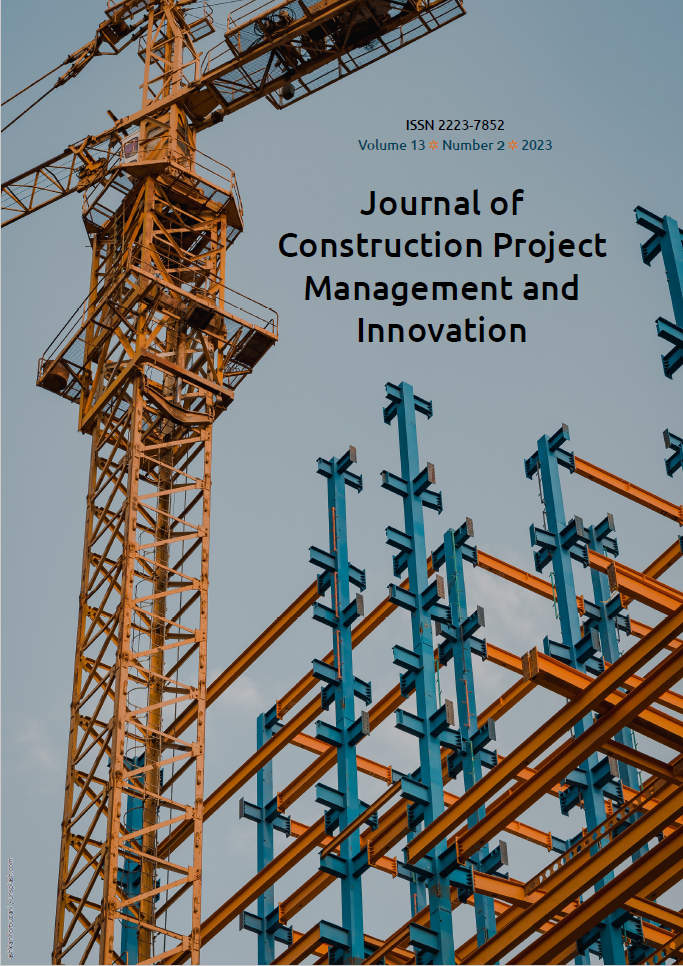An assessment of the impact of discounted Fees on the quality of services rendered by Quantity Surveying firms The case of Gauteng Province
Main Article Content
Keywords
Discounted fees, Guideline tariffs, Quality of service, Quantity surveying firms
Abstract
The quantity surveying (QS) profession has faced a lot of challenges that threaten its existence, growth, and success over the years. The most common being, the adequate compensation for quality of services rendered. The QS council in South Africa is instituted by law and has a mandate to publish a Guideline Tariff of Professional Fees to determine the professional fees to charge for the deployment of skills, expertise, and knowledge towards addressing clients’ needs. However, the excessive discounting of fees to secure work for most firms is a challenge, as guidelines remain rigid leaving no room for error. The purpose of this paper is to examine how the current structure of the fee guidelines affects the quality of the service outputs of QS firms and by extension their competitiveness. The study adopted a positivist stance, and deductive reasoning that culminated in the use of the quantitative approach. To ascertain 100% response rate, self-administered questionnaires were used to a sample size of 35 firms, selected using non-probability sampling to choose firms within the Gauteng Province to participate in the survey. The findings indicated the preponderance of discounted fees among QS firms for various reasons and identified 4 themes: (1) the prevalence of discounted fee (2) the impact of discounted fees on quality of QS services (3) the factors influencing the prevalence of discounted fees and (4) the survival and eventually the growth of the firm. The themes show how the lack of enforceability on the fee tariffs has provided clients with a leverage to negotiate fee discounts that often exceed 40% and how these have affected profits for the firms. This study highlights a need for the recommended tariff of professional fees to be published to provide a basis for QS fees which is determined by the council for the profession, and which cannot be disputed by clients.


